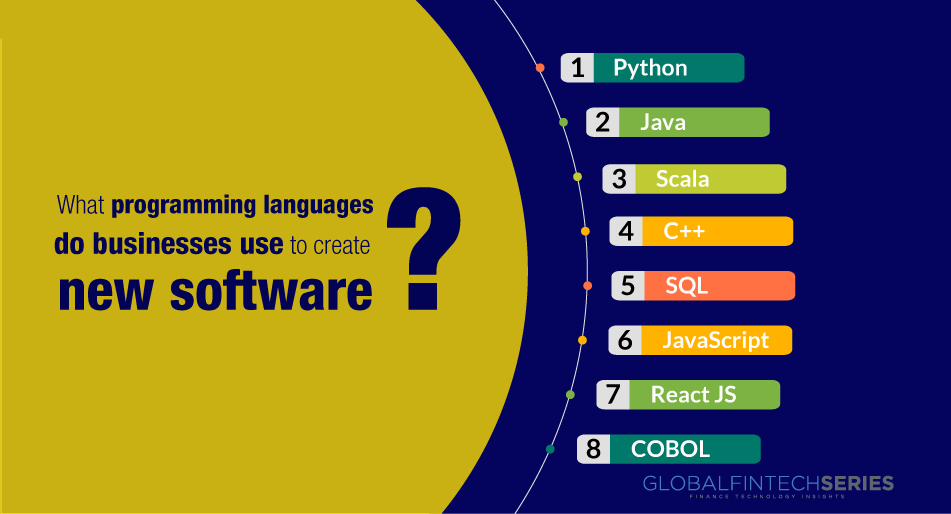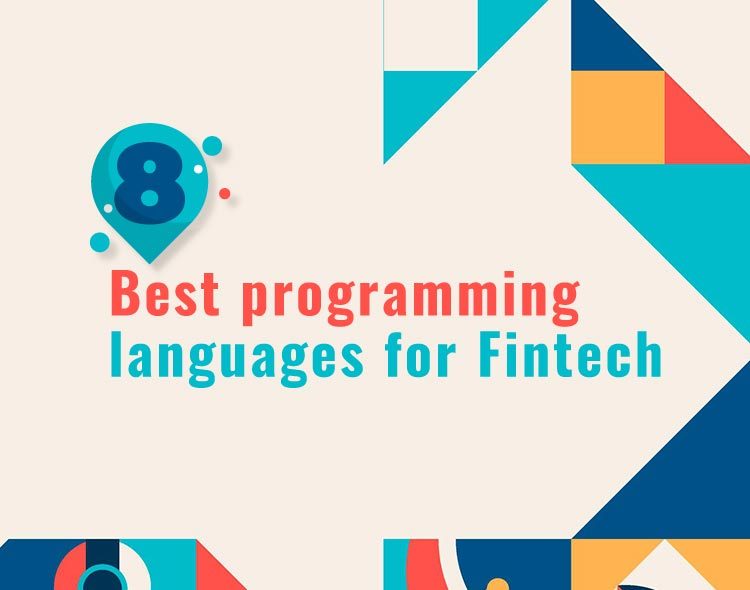Does fintech need programming?
Banks are now directly investing in a number of these IT companies and fintech start-ups because of their increasing fascination with Technology. Some even have corporate teams working on cutting-edge innovations like blockchain. Although much of this content is interesting, programming expertise is needed to complete the task.
What programs are employed in fintech?
- Mobile Payment Systems (smartphone payment apps, contactless payment)
- Financial Services (mobile banking, budgeting, saving, investing, and borrowing)
- Trading and advising markets (Robo advising and trading)
- Blockchain and digital money (payments, wallets, smart contracts, asset tokenization)
What programming languages do businesses use to create new software?
FinTech has without a doubt altered how financial services and products are delivered to consumers. It revolutionized every aspect of how financial institutions operate, including how they serve clients and draw in investors. Companies must pick the best programming language when developing a FinTech, banking, or finance solution. Programming skills are essential in a number of fields, including the creation of FintTch apps, financial modeling, simulations, data analytics, and AI algorithms. What computer language should I select for FinTech then? See our list to learn more!
 Read the latest article: Importance Of Customer Experience Management In Fintech Industry
Read the latest article: Importance Of Customer Experience Management In Fintech Industry
1. Python
Python is a fine choice in terms of security. It is frequently utilized in fintech solutions related to risk management, fraud detection, personal finance, automated trading, and cyber-security. In addition, developing software is incredibly quick because to strong frameworks like Django and a wealth of open-source tools. Because it is a high-level programming language, it is also simpler to learn because it operates on robust abstractions.
2. Java
Given Java’s immense popularity, it is difficult to identify the sectors that do not use it. It’s widely used in the financial services sector as well. Strengths of Java include its cross-platform compatibility and improved security. Also, the programmes created twenty years ago still function on the most recent JDK (Java Development Kit)! It serves as a “lingua franca” for the majority of the top DIA technologies on the market, including Hadoop, HDFS, Solr, Lucene, Flink, and Cassandra. See our open positions here if you are a Java developer.
3. Scala
The success of Java made it possible for Scala to enter the market and provide a vast ecosystem of cutting-edge libraries. High-end distributed software systems used in financial goods typically process enormous volumes of data. Scala is a fantastic choice for handling it because it’s extremely productive and helps engineers condense their source code. Compared to Java, there are at least two or three differences. In addition, Scala is used to create the most well-liked frameworks that support Big Data, the fuel that keeps the FinTech industry alive.
4. C++
C++ developers ruled the market not only in the telecom sector (you can learn more about telecom in our article), but also in finance. It makes sense that this language is used to build most traditional bank systems.
5. SQL
Financial software, as well as financial analysis, are built on data and financial records. SQL is a special-purpose computer language having applications in finance for data storage, analysis, and manipulation. Hence, System Analysts like ours, who work for one of the largest institutions in Europe, should be conversant with it in addition to Developers.
6. JavaScript
Security is one of the reasons JavaScript works so well for applications in the financial sector. Byte code is difficult to attack or alter, and JS has excellent memory management and compatibility.
7. React JS
JavaScript’s React library is used for front-end programming. While it is not a programming language in and of itself, the Global Fortune 500 corporations do require it as a competence. With them, creating personal finance apps is quite simple!
8. COBOL
According to estimates, COBOL or common business-oriented language is used in as much as 80% of financial operations. Although being 60 years old, the language continues to drive the world economy. Nonetheless, the lack of COBOL developers made this language a specialized expertise, despite many predicting its demise. After all, programming students are eager to see the fastest processing language, which is worth a small sum.
Also Read: One Of The Industry’s Best Kept Secrets: Expense Management By CFO’s
